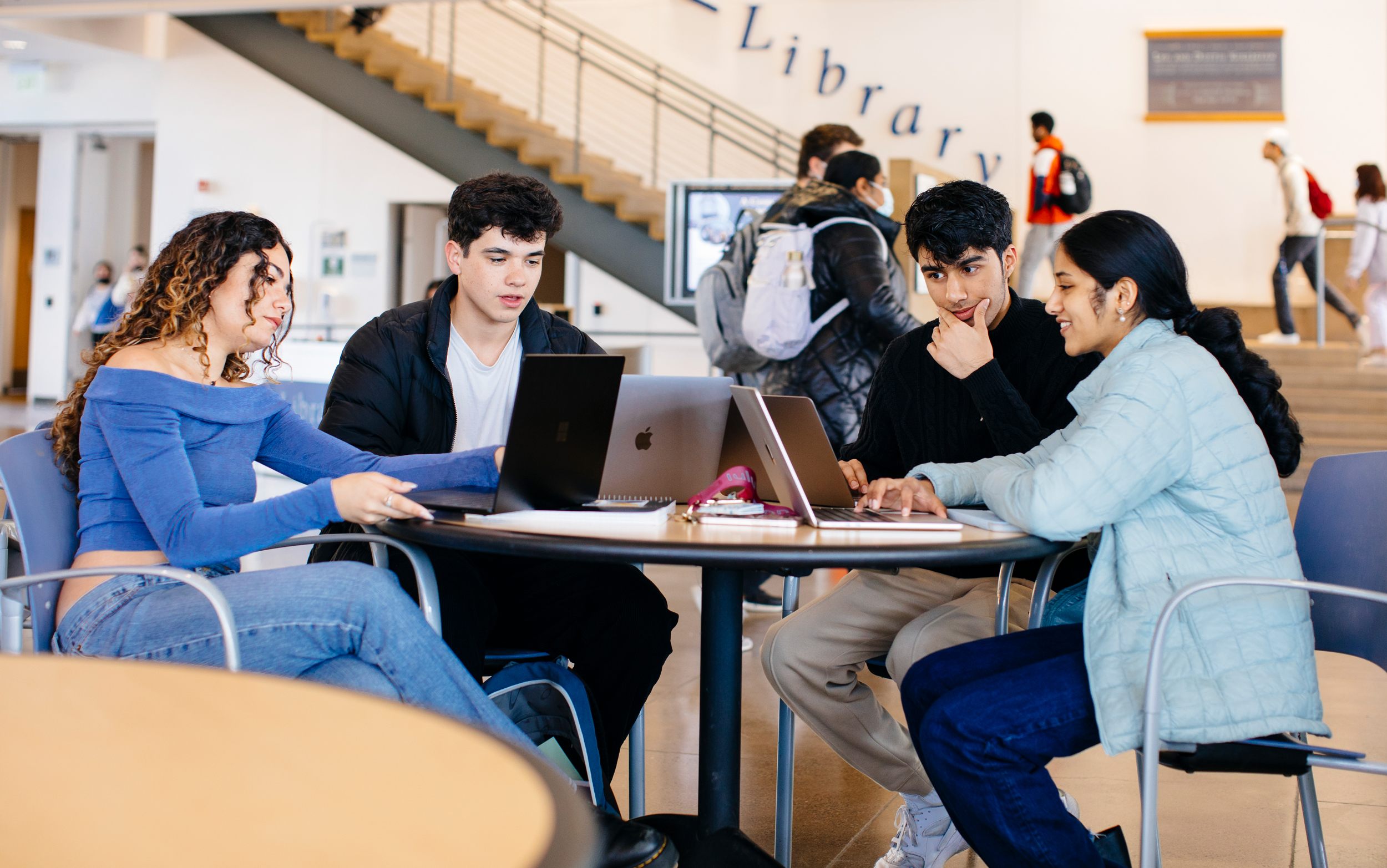Melissae Fellet , UC Santa Cruz

After examining her eyes when she was a child, doctors predicted that Lourdes Morales would not be able to go to school because her vision was so compromised.
Nevertheless, her parents had their daughter fitted for glasses and encouraged her to join her peers in the classroom in their hometown in Puerto Rico.
Morales’s vision deteriorated as she grew up, and she was legally blind by her mid-teens. She found it hard to keep up in class, and she almost dropped out of school. But she stuck with it, using electronic magnifiers to display enlarged text on a television screen. Her mother and her high school would enlarge reading material by photocopying it. Screen magnifier software helped her use a computer. Determined to complete her schoolwork, Morales graduated ninth in her high school class. She continued to work hard in college at the University of Puerto Rico, Río Piedras, and traveled to the continental United States three times for summer research projects.
Now, as a graduate student in computer science at UC Santa Cruz, Morales is working to fulfill her goal of helping others with disabilities to use technology to advance socially, academically, and professionally. It's a goal she began to pursue as an undergraduate, choosing computer science as a major so she could work on electronic assistive technology like the magnifiers she used during high school.
Summer research programs
A mentor at the university encouraged Morales to apply for summer research programs. In the summer of 2009, she took her first trip to the continental United States for a research project in computational mathematics at the Mathematical Sciences Research Institute in Berkeley. Morales said she was nervous about coming to California, but when she got to Berkeley she found that she loved the research.
The next school year, when Morales was looking for other summer research projects, she learned about the Interactive Systems for Individuals with Special Needs (ISIS) lab at UC Santa Cruz (then called the Assistive Technology Lab). Led by Sri Kurniawan, associate professor of computer engineering in the Baskin School of Engineering, the group works to help people with special needs maintain a high quality of life through technology. The research would be an opportunity for Morales to apply her skills in computer programming to her original interest in assistive technology.
Morales came to UC Santa Cruz in the summer of 2010 and worked on a mobile phone game that motivates teenagers to exercise. One aspect of the project she particularly liked was that people who would use the technology participated in its design. The key to this process is working with users from the beginning of a project, interviewing them about how they use a particular technology, and gathering their thoughts on how it could be improved. Researchers use that information to design a prototype program, which is tested with users and improved based on their feedback.
In March 2011, Kurniawan received a National Science Foundation (NSF) CAREER award to develop a software program to help blind people format documents such as resumés using a word processing program. Morales secured her own funding to return to UCSC that summer to work on the project, which she is continuing to focus on as a graduate student. Morales has interviewed and surveyed blind people to learn about their concerns around document formatting. Some were worried that that submitting an atypically formatted document would make them appear sloppy, careless, or unprofessional to sighted readers. Others were more dismissive, considering formatting something that only benefits sighted people.
Assumptions challenged
Information from the interviews and surveys also challenged certain assumptions that Morales had unknowingly brought to the project. “I thought blind people knew how to format documents, and we just needed to make a tool to help,” she said. “But they want to know how and why sighted people use formatting functions.” So now her formatting program has an additional objective to be a learning tool for the users.
Morales receives support from a NSF Graduate Research Fellowship and the UC Santa Cruz Eugene Cota-Robles Fellowship. Her immediate goal is to complete the requirements to advance to doctoral candidacy so she can focus on her dissertation. But Morales said it can be a challenge for her to focus her attention on one project, because other projects in the group look like such good opportunities to learn new skills. Many of the students in the ISIS lab work on pro bono projects commissioned by non-profit or educational organizations.
“Lourdes is one of the students who always jumps when I need new volunteers,” Kurniawan said.
Morales volunteered for a project collaborating with Imagine!, a non-profit group in Colorado that works with people with cognitive and developmental disabilities. The group asked the ISIS lab to develop several mobile applications to help their clients with basic tasks like number counting, identifying colors, reading a clock, and identifying public symbols. Existing applications like this are often developed for children. Animations and loud noises in these apps keep children’s attention, but they can be distracting or juvenile to people with cognitive disabilities.
Morales has also worked on a game to help stroke survivors learn math, narrated a game to help kids perform physical therapy exercises after cleft palate surgery, and performed user tests for a vibrating belt developed at Toyota that could help blind people navigate.
Morales said she enjoys programming and likes to use her skills to help people. In some cases, the benefits of her work may extend well beyond her target users. “Sometimes when you develop things to be more accessible, they become a new standard because they’re easier to use,” she said.

